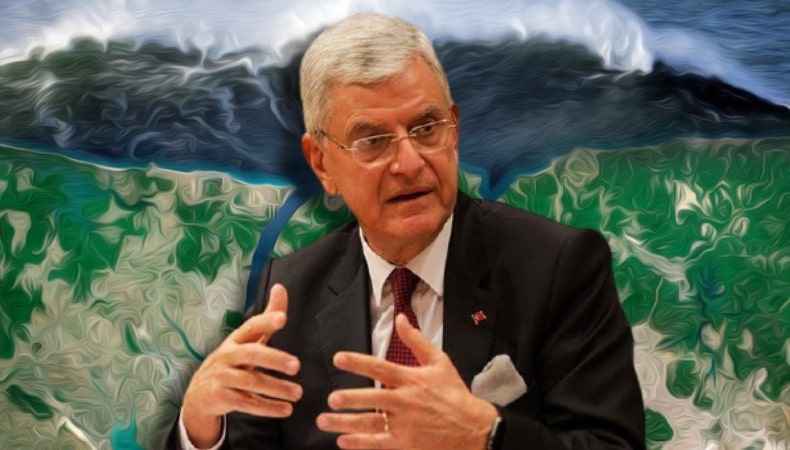Turkey’s plan to go ahead with Kanal Istanbul can cause friction with Russia

On Friday, in an unprecedented move, 126 former Turkish diplomat released a joint statement warning Recep Tayyip Erdogan’s government against Kanal Istanbul project.
Backing the statement with their strategic experience, former ambassadors believed that the 45-kilometer long canal could cause friction between Turkey and Russia, if the provisions of the Montreux Convention were not revised. “Kanal Istanbul will open the Montreux Convention to discussion, and will lead to Turkey’s loss of absolute sovereignty over the Sea of Marmara,” the statement said.
Erdogan’s ambitious canal project aimed at providing an alternative global shipping route to merchant and military vessels between the Black Sea and the Marmara Sea, lifting the load off the Bosphorus Strait. But the artificial seaway has been criticised not only for its financial or environmental risks but also for its geopolitical and maritime risks. The scheme has been openly touted as a “crazy project” by Istanbul’s opposition mayor Ekrem Imamoglu.
Like Imamoglu, many believed that the $9.2 billion canal project, could be a bone of contention between Moscow and Ankara if latter decides to jeopardise the validity of Montreux convention, in a move to generate revenue. The 1936 convention was brought in place to ensure acceptable transit duties were imposed on the vessels sailing through the region.
The probability of conflict between the two nations rose after Turkish president assigned himself the power to withdraw from any international convention without parliamentary approval in 2018. Political analysts believed that withdrawal from the said convention could evoke serious rage and retaliation from the side of Kremlin.
During an interview in December 2019, Aleksey Yerkhov, Russian ambassador in Turkey, said that if the canal project was undertaken then his country would press Erdogan for applying the provisions of the Montreux Convention to its passages.
Ozgur Unluhisarcikli, Ankara director of the German Marshall Fund of the United States, told Arab News: “There are two opposing views on whether Kanal Istanbul would fall under the Montreux regime if it were built. While I don’t think which interpretation gains acceptance will ultimately matter so far as vessels of war are concerned, I would not say the same thing regarding merchant vessels and revenue generation.”
He added, “However, in this case Turkey could apply different rules to merchant vessels in order to be able to generate revenue… If Kanal Istanbul were accepted as falling under the Montreux regime, Turkey could find it difficult to generate significant revenue, as the Montreux Convention limits the taxes and charges that can be imposed on merchant vessels.”




